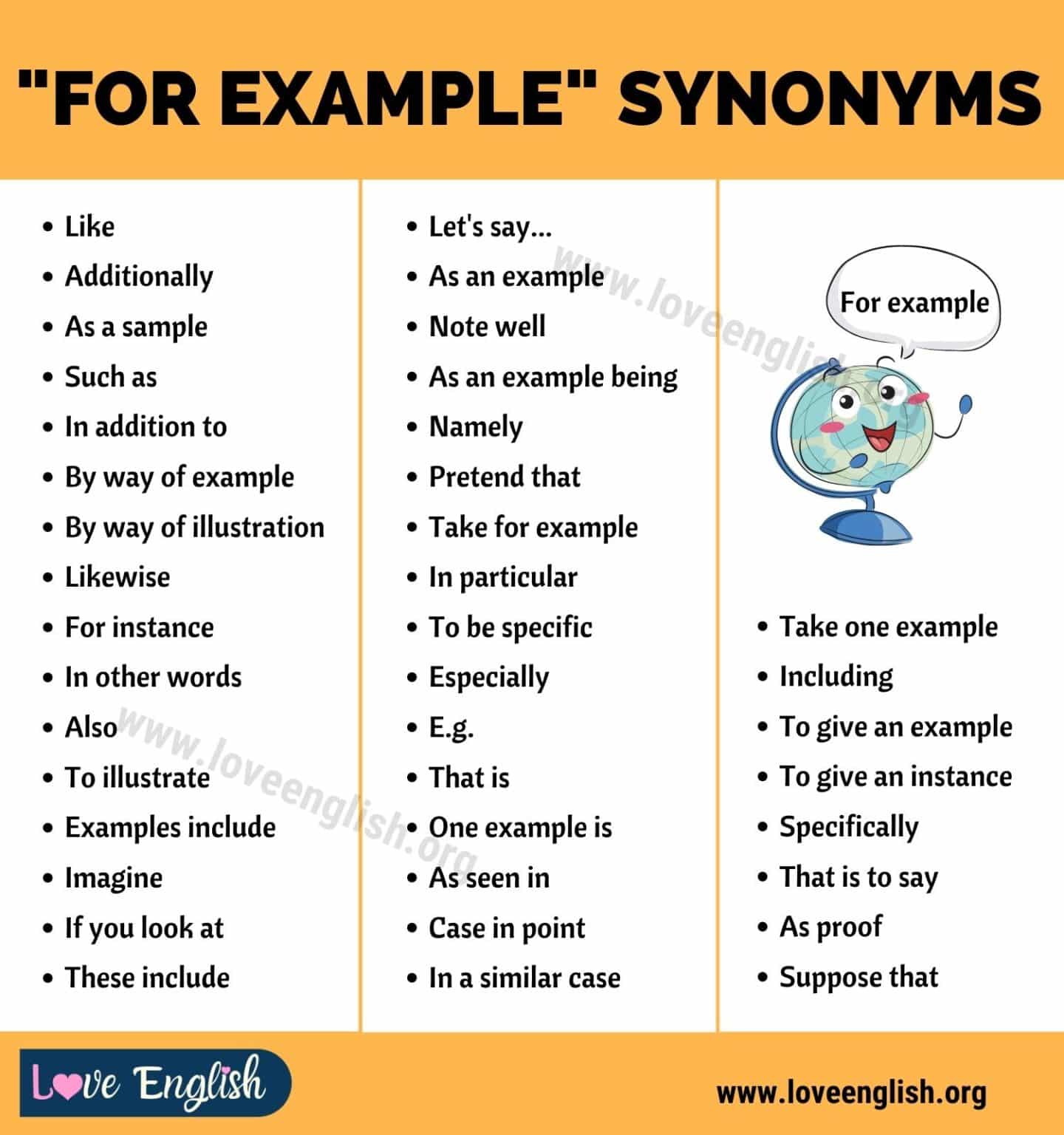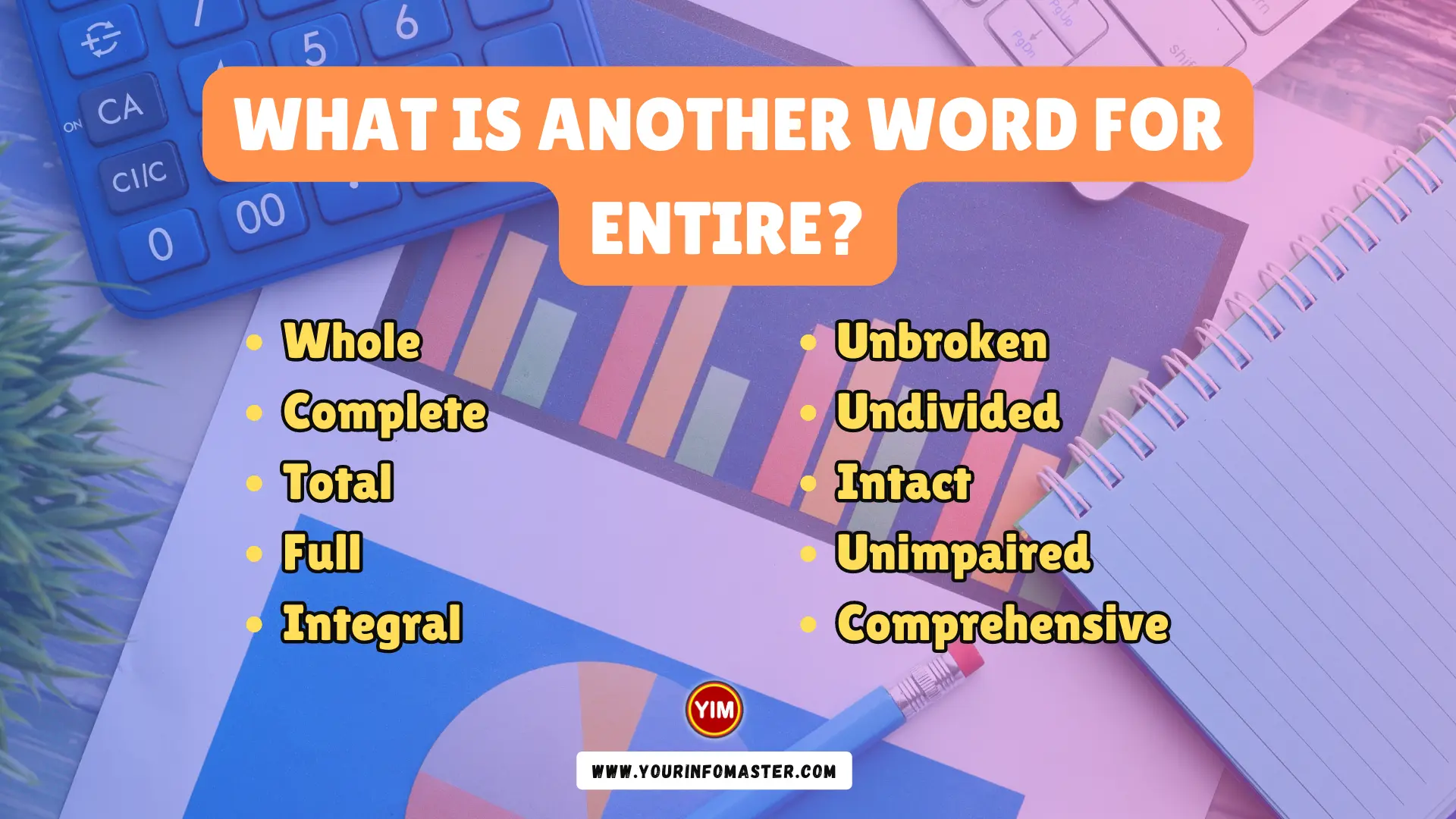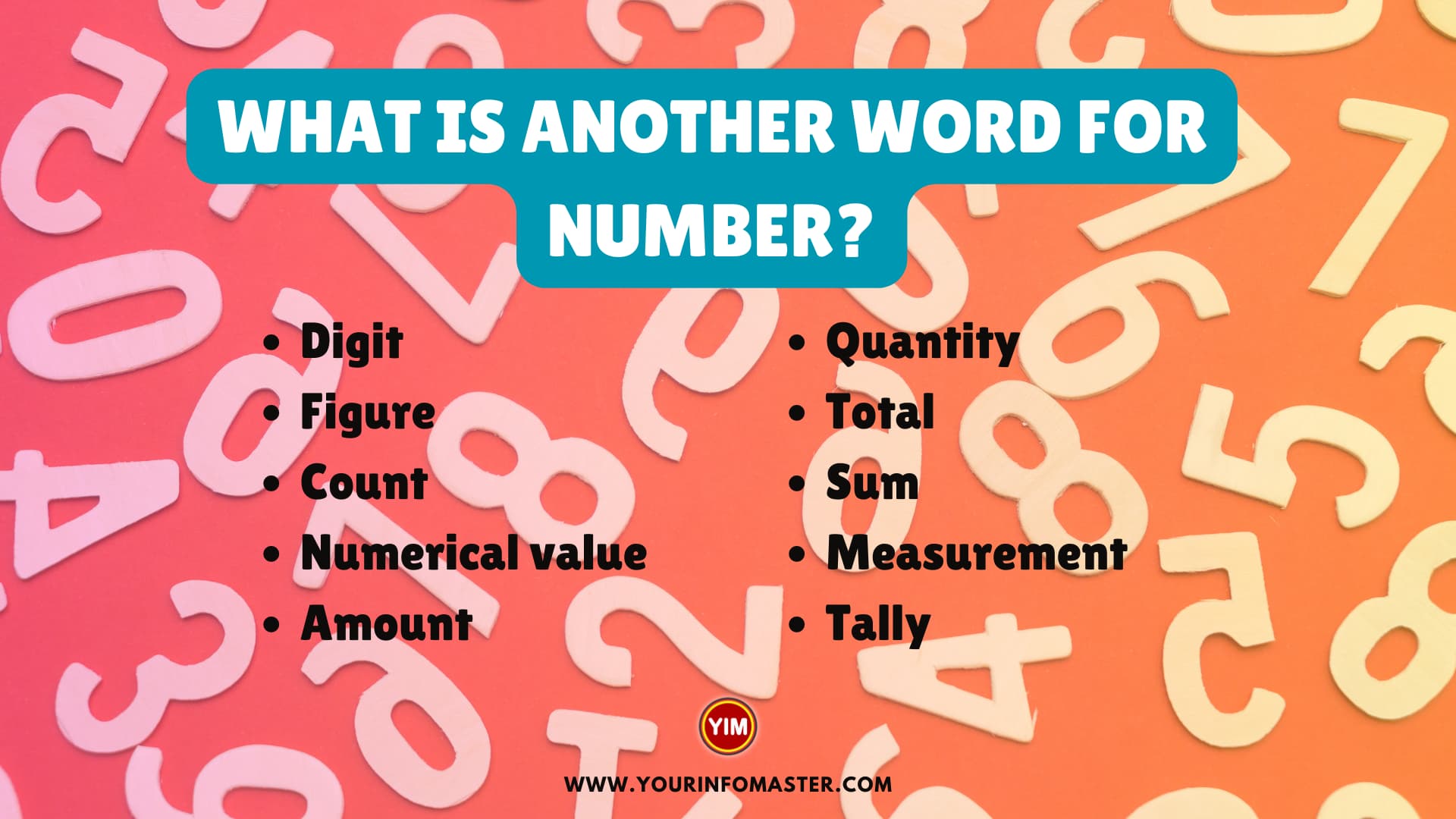Finding Your Voice: Discovering Another Word For And To Boost Your Writing
Are you tired of seeing the same old "and" pop up in every sentence, making your writing feel a bit, well, repetitive? It's a common little connector, isn't it, but relying on it too much can really make your words lose some of their spark. We all want our writing to sound fresh and engaging, and sometimes, that just means finding a different way to link our thoughts together. You know, making things flow a little more smoothly.
For anyone who puts words on a page, whether it's for school, work, or just for fun, having a rich vocabulary is, in a way, like having a bigger toolbox. The more tools you have, the better you can build something truly special. And that's especially true when you're looking for another word for and, because there are so many options that can change the whole feel of your sentences, actually.
So, if you're hoping to make your sentences more interesting, give your writing a more formal touch, or simply expand your collection of words, you're in the right spot. We're going to look at lots of different ways to express connection without always leaning on that one familiar word. It's really about giving your ideas the best chance to shine, you know?
- Why Are People Boycotting Target
- Best Shampoo And Conditioner
- Best Remoteiot Vpc
- Sid From Toy Story
- Skip Hop Activity Center
Table of Contents
- Why Look for Alternatives to "And"?
- Formal Friends of "And"
- Casual Companions for "And"
- The Power of Choice: When to Use What
- Common Questions About Another Word for And
- Making Your Writing Sing
Why Look for Alternatives to "And"?
You might be thinking, "What's wrong with 'and'?" And honestly, nothing at all! It's a perfectly good word, very useful, and quite common. The thing is, using it over and over can make your writing sound a bit, well, basic, perhaps even a little clunky. Imagine a song with only one note; it gets a little boring after a while, doesn't it? Our words are, in some respects, like those notes.
Expanding your vocabulary, particularly with words that can stand in for "and," helps you achieve a few really cool things. For one, it makes your writing more engaging for the person reading it. They won't get stuck in a rut of similar sentence structures, which is nice. It also shows that you have a good command of the language, which, in a way, builds trust and respect for your ideas.
Think about it: sometimes you want to add an idea, sometimes you want to show a consequence, and sometimes you just want to list things. "And" can do all of these, but other words can do them with more precision and style. This is why places like thesaurus.com and synonyms.com are so helpful, offering hundreds of choices to improve your writing and expand your English vocabulary, you know?
- 10 Sibling Entire Wayans Brothers Family
- What Is The Healthiest Energy Drink
- Cronología De Inter Milan Contra Fc Barcelona
- Daisy Edgar Jones Movies And Tv Shows
- Jojo Siwa Magazine Cover
Formal Friends of "And"
When you're writing something important, like a report for work, a school paper, or a formal email, you often want your language to sound a bit more polished. Using a variety of words instead of just "and" can certainly make your writing feel more sophisticated. There are several alternatives to "and" that can definitely enhance the formality of your writing, you see.
Emphasizing Addition
Sometimes, you want to show that you're adding information, but you want to do it in a way that feels a bit more substantial than just "and." These words really help to build on an idea, making your argument or explanation stronger. They say, "Here's more, and it's important!"
- Moreover: This one is great for adding a point that supports or expands on what you've just said. It's like saying, "What's more, consider this."
Example: The new policy will reduce costs; moreover, it will improve employee satisfaction.
- Furthermore: Quite similar to "moreover," this word is perfect for introducing an additional piece of evidence or a stronger argument. It signals that you're building a case.
Example: The research showed promising results; furthermore, it opened new avenues for study.
- Additionally: This is a straightforward way to add another item to a list or another point to an argument, maintaining a very clear and formal tone.
Example: The project requires more funding; additionally, we need more staff.
- In addition to: This phrase helps to connect a new piece of information to what's already been mentioned, often at the start of a sentence or clause.
Example: In addition to the main course, we served a variety of side dishes.
- As well as: This phrase is a good way to include something extra without making it feel like a completely separate thought. It suggests a close connection, you might say.
Example: The team is responsible for planning as well as execution.
- Besides: When you want to add another point, often one that reinforces or adds to what's already been stated, "besides" can work quite nicely.
Example: The report was well-written; besides, it was submitted on time.
These words, you know, they give your writing a more structured feel. They tell your reader that you're carefully presenting your points, one after another, which is a very effective way to communicate complex ideas. They help to build a very clear flow, too.
Showing Consequence or Continuation
Sometimes, "and" is used to show that one thing follows another, or that there's a result. But there are more precise ways to do this, especially in formal writing. These words really help to clarify the relationship between different parts of your sentences, making your arguments much easier to follow, actually.
- Consequently: This word clearly shows that what follows is a direct result or outcome of what came before. It's a very strong indicator of cause and effect.
Example: The budget was cut; consequently, several projects were delayed.
- Therefore: Similar to "consequently," "therefore" is used to introduce a logical conclusion or a deduction based on previous statements. It's often used in academic arguments.
Example: The data supported the hypothesis; therefore, the theory was accepted.
- Thus: This word can introduce a result or a conclusion, often used in a more concise way than "therefore." It's a bit more formal, perhaps.
Example: The experiment was successful, thus proving the new method.
- Hence: "Hence" is another word for introducing a consequence or a deduction, often implying "from this point forward" or "for this reason."
Example: The evidence was insufficient; hence, the case was dismissed.
- Subsequently: This word is great for showing a sequence of events, indicating that something happened after something else. It's about time and order, you see.
Example: The initial meeting was productive; subsequently, a detailed plan was developed.
Using these words instead of a simple "and" really elevates the tone of your writing. It shows a very thoughtful connection between your ideas, which is, in a way, the mark of a skilled writer. You're not just listing things; you're showing how they relate, which is pretty important, really.
Casual Companions for "And"
Of course, not all writing needs to be super formal. Sometimes, you just want to add a bit of flair to your everyday conversations or more relaxed writing. There are plenty of words that can replace "and" in a more casual setting, keeping things friendly and easygoing. These are great for when you want to sound approachable, you know?
- Also: A very common and versatile word for simply adding another item or idea. It's friendly and straightforward.
Example: I like pizza, also pasta.
- Plus: This word is great for adding something extra, often with a slightly informal or conversational feel. It's like saying, "and here's another thing."
Example: We need milk, plus some bread.
- Along with: This phrase works well for including something or someone else with the main subject. It suggests companionship or inclusion.
Example: She went to the party along with her friends.
- Together with: Similar to "along with," this emphasizes that items or people are grouped or considered as a unit. It's a bit more explicit about the grouping, you might say.
Example: The report was submitted together with the presentation.
- What's more: This phrase is very conversational and adds emphasis to an additional point, often one that's surprising or particularly interesting. It really grabs attention.
Example: The food was delicious; what's more, it was very affordable.
- Not only that: This is another great phrase for adding an extra point, especially when you want to build up to something more significant. It creates a bit of suspense, you know?
Example: He finished the race in record time; not only that, he set a new personal best.
These words and phrases help you keep your writing natural and engaging, even when you're just adding simple details. They prevent your sentences from sounding too much like a list, which is, in a way, a very good thing for keeping readers interested. They add a bit of variety, too, which is always welcome.
The Power of Choice: When to Use What
Choosing the right word to replace "and" isn't just about avoiding repetition; it's about adding meaning and nuance. Each alternative carries its own subtle flavor, you see. For instance, "moreover" suggests you're adding an important, perhaps even stronger, point, while "plus" might just be a simple addition. It's a little like picking the right spice for a dish, actually.
Consider the context of your writing. Are you trying to persuade someone? Then words like "furthermore" or "consequently" can really strengthen your arguments. Are you just providing information in a friendly way? Then "also" or "along with" might be a better fit. The goal is to make your writing as clear and impactful as possible, and that often means being very deliberate with your word choices, you know?
Learning these synonyms helps you expand your vocabulary and significantly improve your writing skill in English. It's about having options, so you can always find the word you're looking for, the one that perfectly fits what you want to say. Thesaurus and word tools are truly for your creative needs, offering a vast array of choices, which is pretty neat.
Common Questions About Another Word for And
What is a more formal word for and?
For a more formal touch, words like "moreover," "furthermore," "additionally," "consequently," and "therefore" are excellent choices. They help to elevate the tone and often introduce a point with greater emphasis or a clearer logical connection. You're really showing thought in your writing with these, you might say.
What is a fancy word for and?
While "fancy" might imply something overly elaborate, if you're looking for words that sound a bit more sophisticated than "and," consider "consequently," "hence," or "thus." These words are often used in academic or very formal contexts, adding a certain polish to your sentences. They make your prose feel a bit more refined, you know?
What are some good alternatives to and?
There are many good alternatives, depending on what you want to express. For simple additions, you could use "also," "plus," or "as well as." If you're building an argument, "in addition to," "moreover," or "furthermore" work well. To show a result, "consequently" or "therefore" are great. The best alternative really depends on the specific meaning you're trying to convey, actually.
Making Your Writing Sing
So, you see, moving beyond "and" isn't about getting rid of it entirely. It's about having a richer palette of words at your disposal. It's about choosing the right connector for the right moment, making your sentences more dynamic and your overall message much clearer. This practice, you know, really helps your thoughts flow beautifully across the page, which is, in a way, the goal for all of us who write.
Every time you consciously pick a synonym, you're not just replacing a word; you're actively shaping the meaning and impact of your communication. It’s a little like fine-tuning an instrument to get just the right sound. This attention to detail can transform your writing from good to truly memorable, and that's a pretty powerful thing, really. You can find many more options and their uses by checking out a good resource like Thesaurus.com.
Keep practicing, keep exploring, and keep trying out these different words. You'll soon find that your writing becomes more varied, more engaging, and, honestly, a lot more fun to create. Learn more about writing effectively on our site, and for more tips on improving your vocabulary, you can find helpful resources here.
- Bianca Grammys Outfit No Blur
- How To Measure Inseam
- Red Hair Big Boobs
- Cuantas Calorias Tiene Una Manzana
- What Is A Sapiosexual

Another Word for FOR EXAMPLE: 40 Different Ways to Say "For Example" in

another word for chimed What is another word for scold?

another word for chimed What is another word for scold?